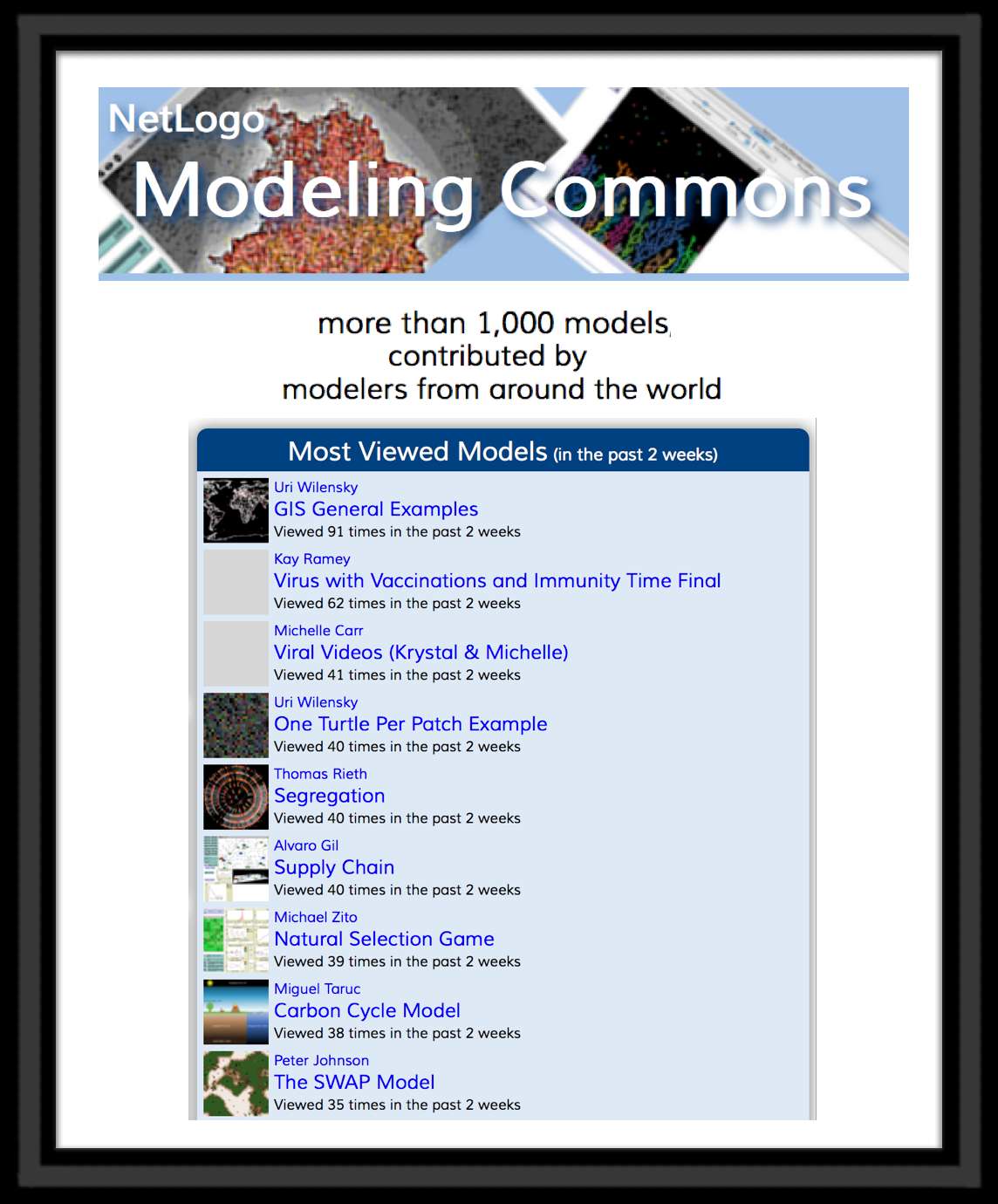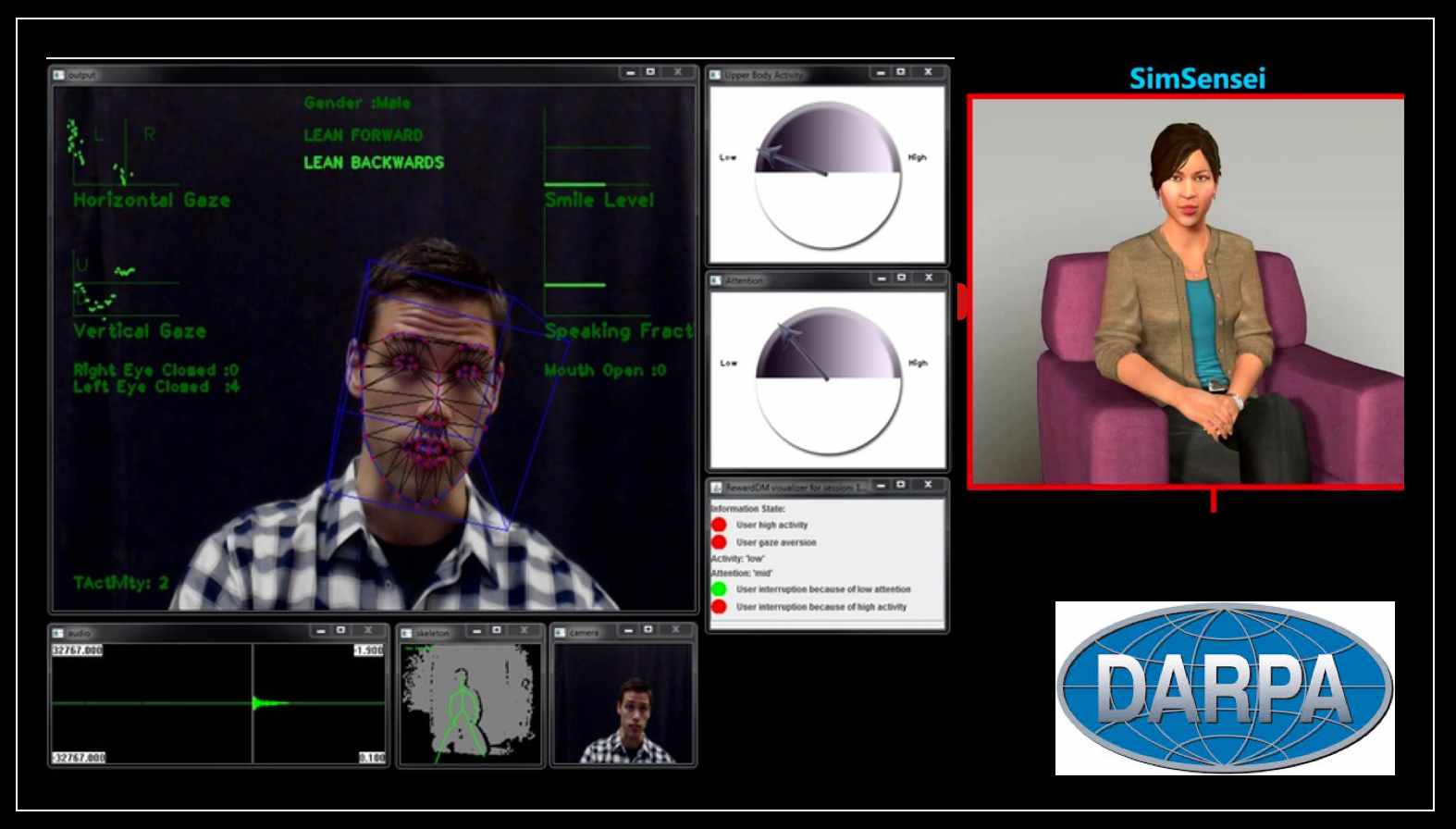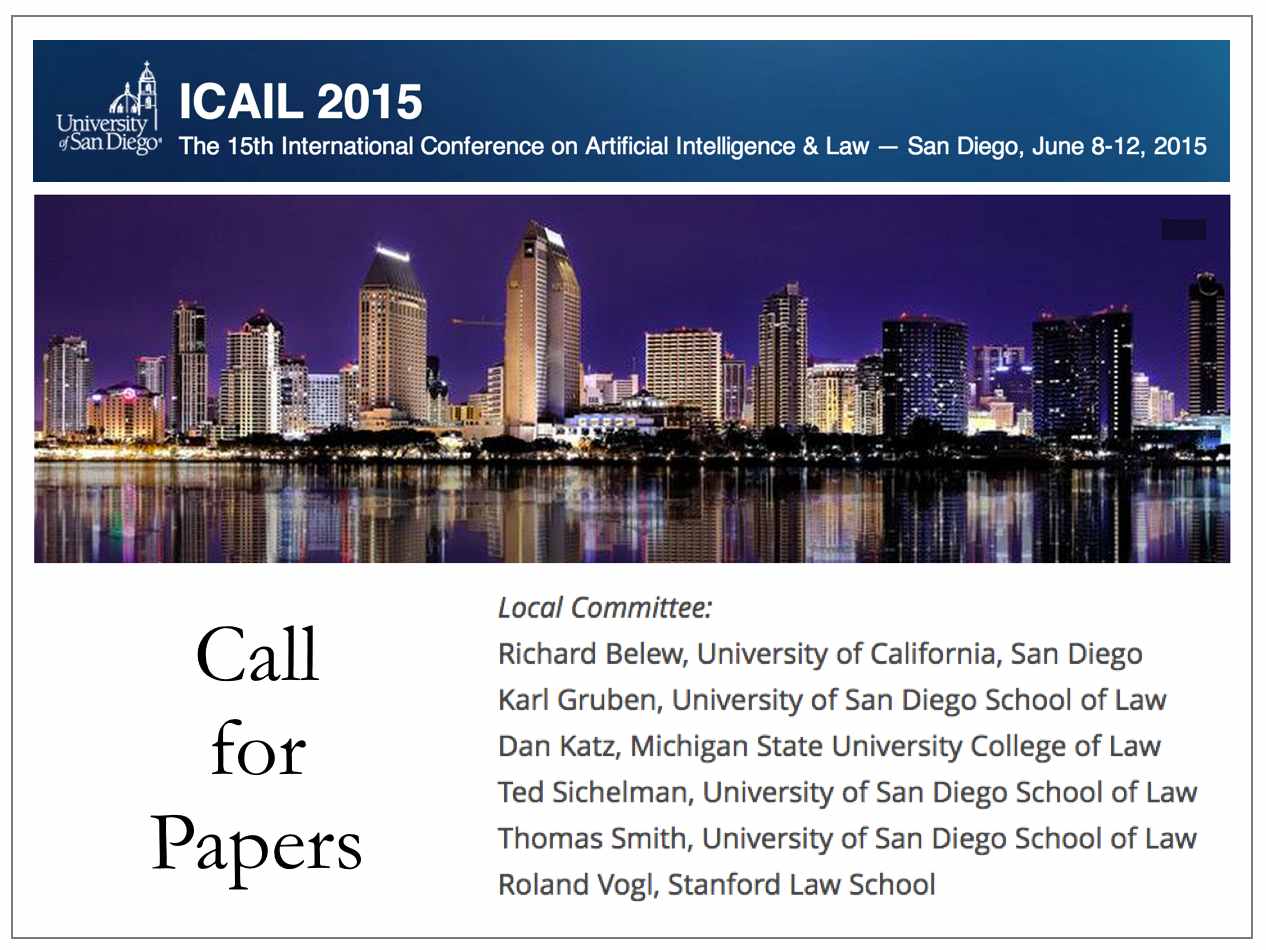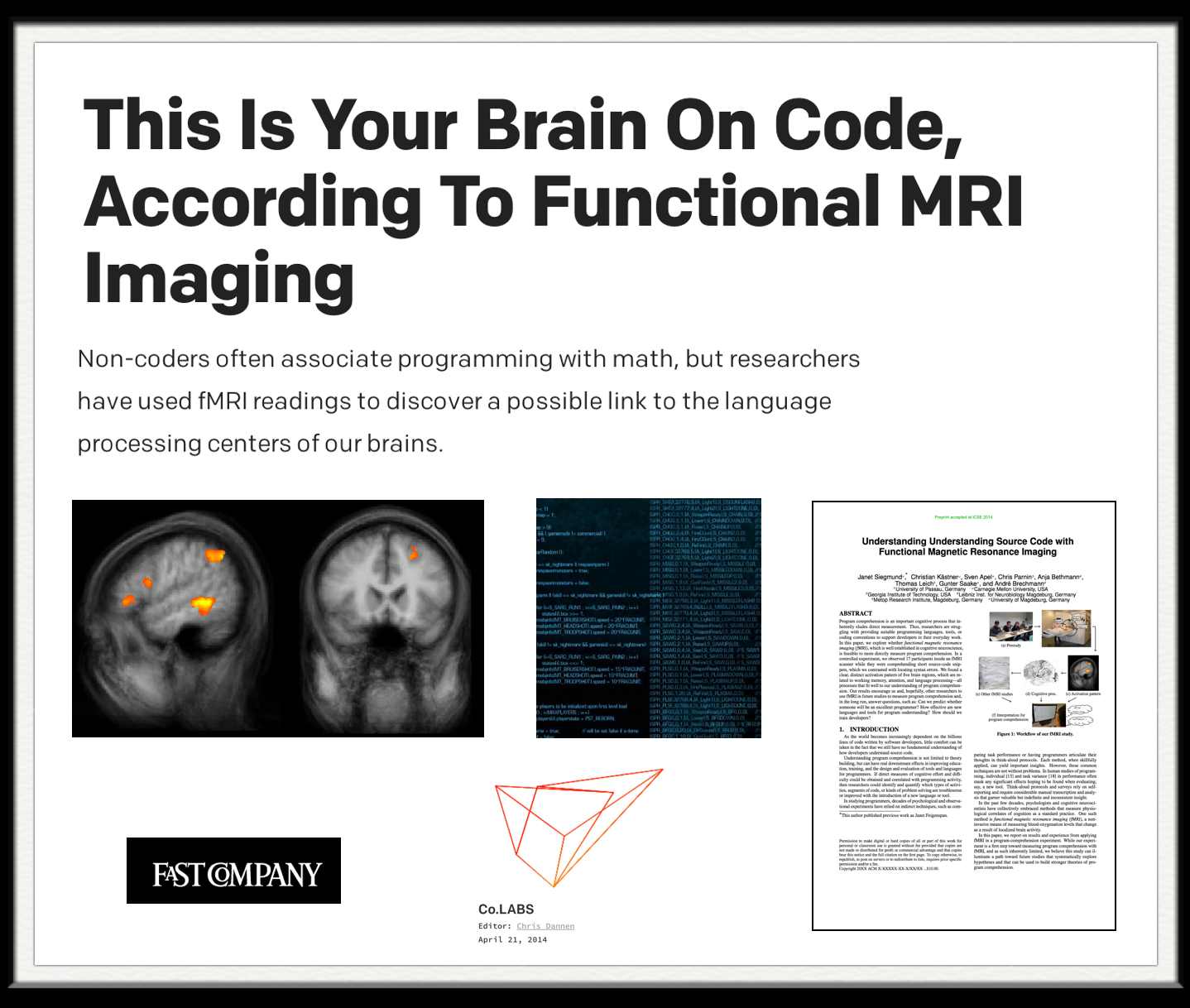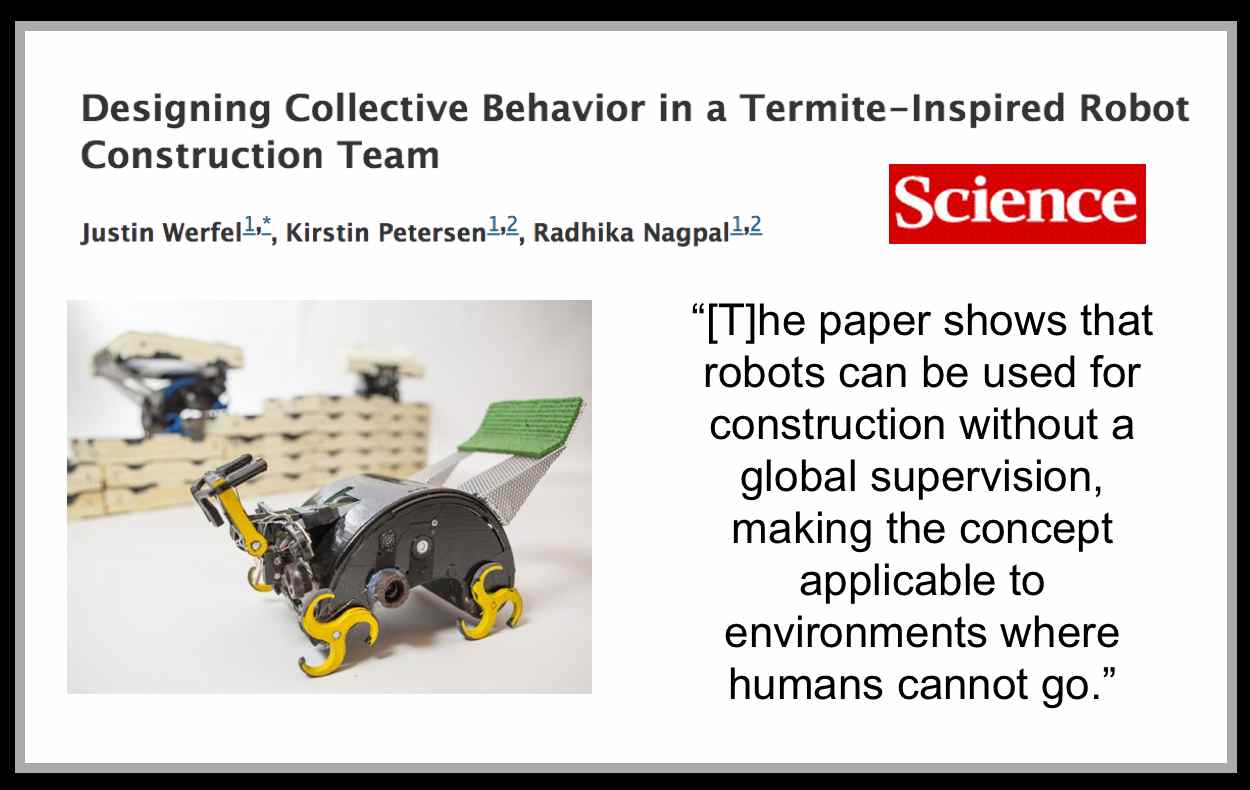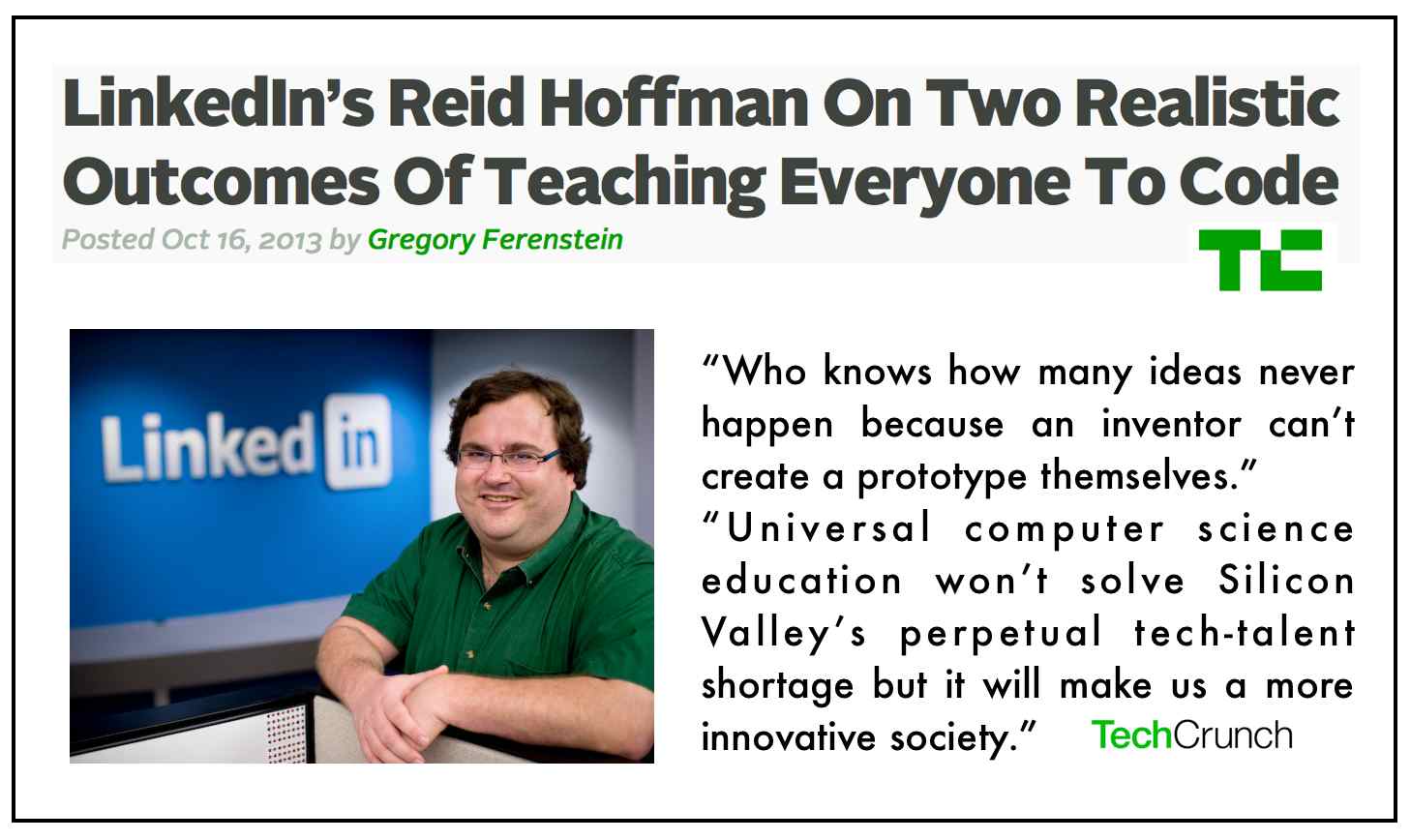Tag: computer science
Call for Papers! – 15th International Conference on AI and Law (ICAIL 2015) June 8-12, 2015, at the University of San Diego School of Law
The 15th International Conference on Artificial Intelligence and Law (ICAIL 2015) will be held at the University of San Diego School of Law from Monday, June 8 to Friday, June 12, 2015.
Artificial Intelligence and Law is a vibrant research field that focuses on:
- Legal reasoning and development of computational methods of such reasoning
- Applications of AI and other advanced information technologies that are intended to support the legal domain
- Discovery of electronically stored information for legal applications (eDiscovery)
- Machine learning and data mining for legal applications
- Formal models of norms, normative systems, and norm-governed societies
Since it began in 1987, the ICAIL conference has been established as the primary international conference addressing research in Artificial Intelligence and Law. It is organized biennially under the auspices of the International Association for Artificial Intelligence and Law (IAAIL). The conference proceedings are published by ACM. The journal Artificial Intelligence and Lawregularly publishes expanded versions of selected ICAIL papers.
The field serves as an excellent setting for AI researchers to demonstrate the application of their work in a rich, real-world domain. The conference also serves as a venue for researchers to showcase their work on the theoretical foundations of computational models of law. Accordingly, authors are invited to submit papers on a broad spectrum of research topics that include, but are not restricted to:
- Formal and computational models of legal reasoning
- Computational models of argumentation and decision making
- Computational models of evidential reasoning
- Legal reasoning in multi-agent systems
- Knowledge acquisition techniques for the legal domain, including natural language processing and data mining
- Legal knowledge representation including legal ontologies and common sense knowledge
- Automatic legal text classification and summarization
- Automated information extraction from legal databases and texts
- Data mining applied to the legal domain
- Conceptual or model-based legal information retrieval
- E-government, e-democracy and e-justice
- Modeling norms for multi-agent systems
- Modeling negotiation and contract formation
- Online dispute resolution
- Intelligent legal tutoring systems
- Intelligent support systems for the legal domain
- Interdisciplinary applications of legal informatics methods and systems
ICAIL is keen to broaden its scope to include topics of growing importance in artificial intelligence research. Therefore, papers are invited on the following featured categories:
- eDiscovery and eDisclosure
- Open data, linked data, and big data
- Machine learning
- Argument mining
Papers will be assessed in a rigorous reviewing procedure. Standard assessment criteria for research papers will apply to all submissions (relevance, originality, significance, technical quality, evaluation, presentation). Papers proposing formal or computational models should provide examples and/or simulations that show the models’ applicability to a realistic legal problem or domain. Papers on applications should describe clearly the underlying motivations, the techniques employed, and the current state of both implementation and evaluation. All papers should make clear their relation to prior work.
- Submission of workshop and tutorial proposals: December 5, 2014
- Submission of papers deadline: January 16, 2015
Local Committee:
Richard Belew, University of California, San Diego
Karl Gruben, University of San Diego School of Law
Daniel Katz, Michigan State University College of Law
Ted Sichelman, University of San Diego School of Law
Thomas Smith, University of San Diego School of Law
Roland Vogl, Stanford Law School
Program Chair
Katie Atkinson
Department of Computer Science,
University of Liverpool, UK
Conference Chair(s)
Ted Sichelman
University of San Diego School of Law
Richard Belew
Cognitive Science Department,
University of California – San Diego
Secretary/Treasurer
Anne Gardner
Atherton, CA, USA
For More Information – Access the Full Call for Papers
Ethereum – A Revolutionary New Platform for Applications (including Computable Contracts)
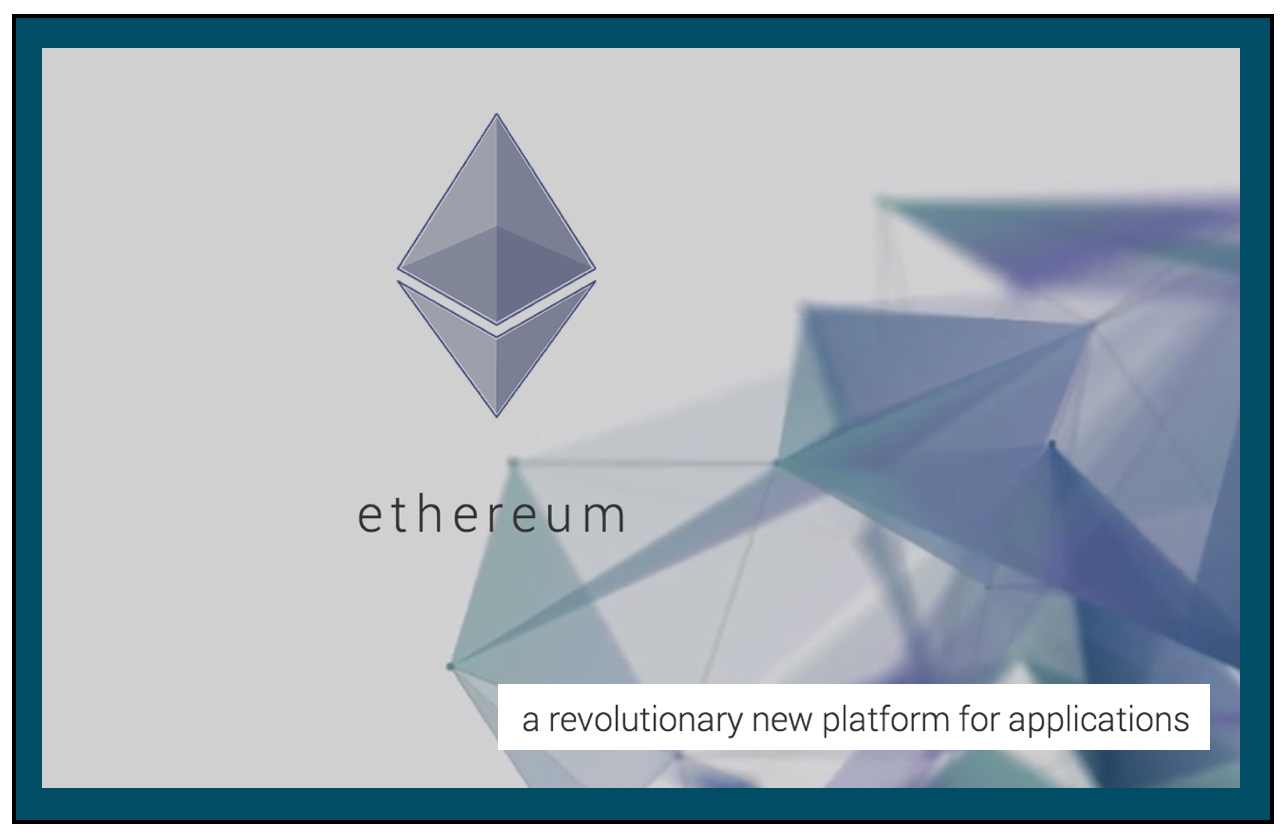 “A new “Lego of crypto-finance” enables users to design social contracts” For more read this article in Aljazeera America.
“A new “Lego of crypto-finance” enables users to design social contracts” For more read this article in Aljazeera America.
Hilary Mason – Machine Learning for Hackers
Hilary Mason – Machine Learning for Hackers from BACON: things developers love on Vimeo.
HT: Noah Waisberg (Diligence Engine Blog)
Designing Collective Behavior in a Termite-Inspired Robot Construction Team (via Science)
This is a pretty important breakthrough for biologically inspired computing. During my doctoral studies at Michigan, I was a NSF-IGERT fellow at the University of Michigan Center for the Study of Complex Systems. I had the great pleasure of spending time lots of time with John Holland whose work on genetic algorithms is one of many efforts to implement biological principles into computing.
Anyway, for those who are geeky like me – you should read the underlying article in this week’s issue of Science and/or the popular press version here.
Quantum Computing: A Primer (via Time)
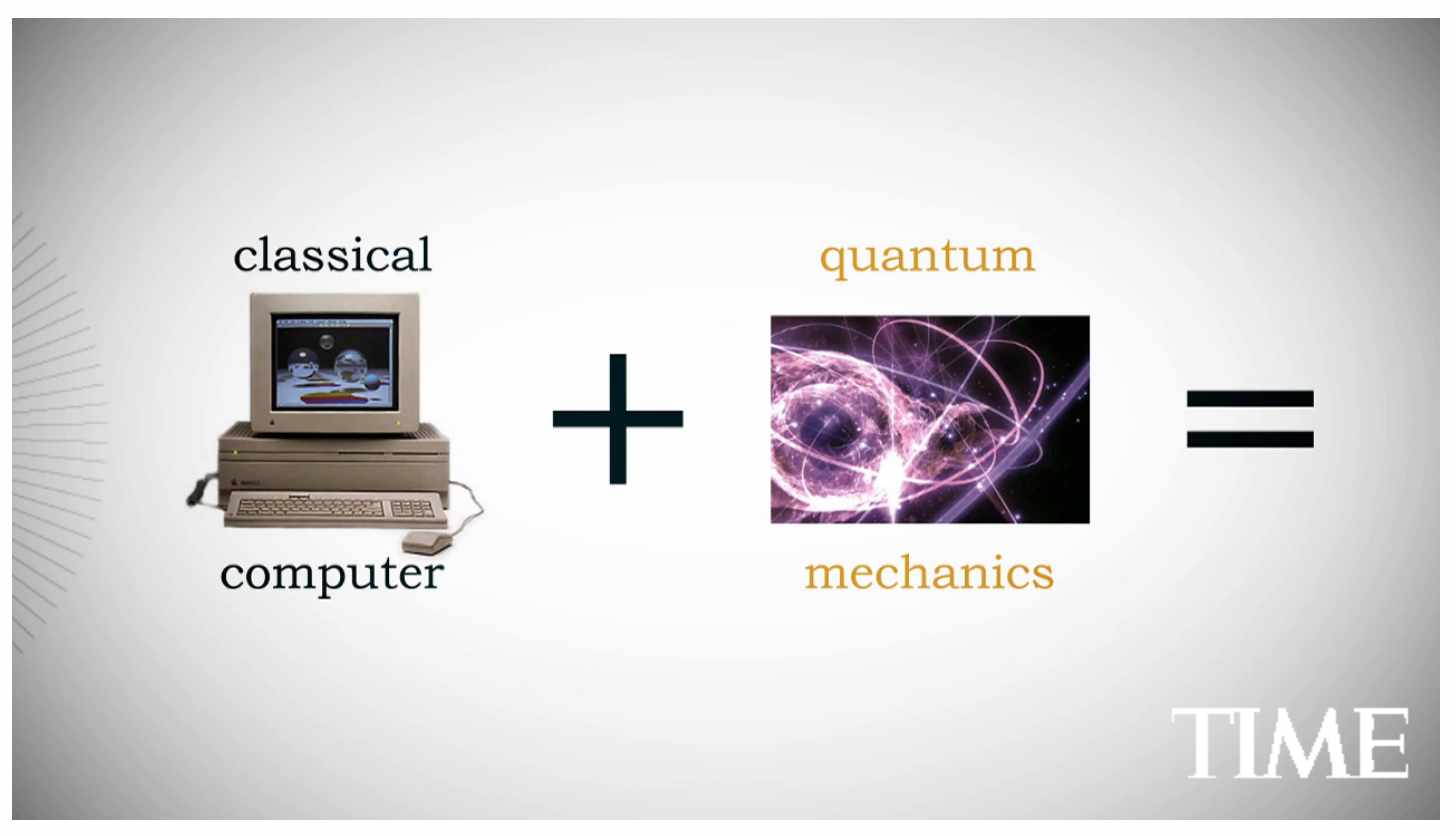 Click through on the image above to access video. I think this is among the more approachable discussions of the topic. For more check out this bonus video and the full article here.
Click through on the image above to access video. I think this is among the more approachable discussions of the topic. For more check out this bonus video and the full article here.
A Case Study in Legal Annotation (Wyner, Peters & Katz)
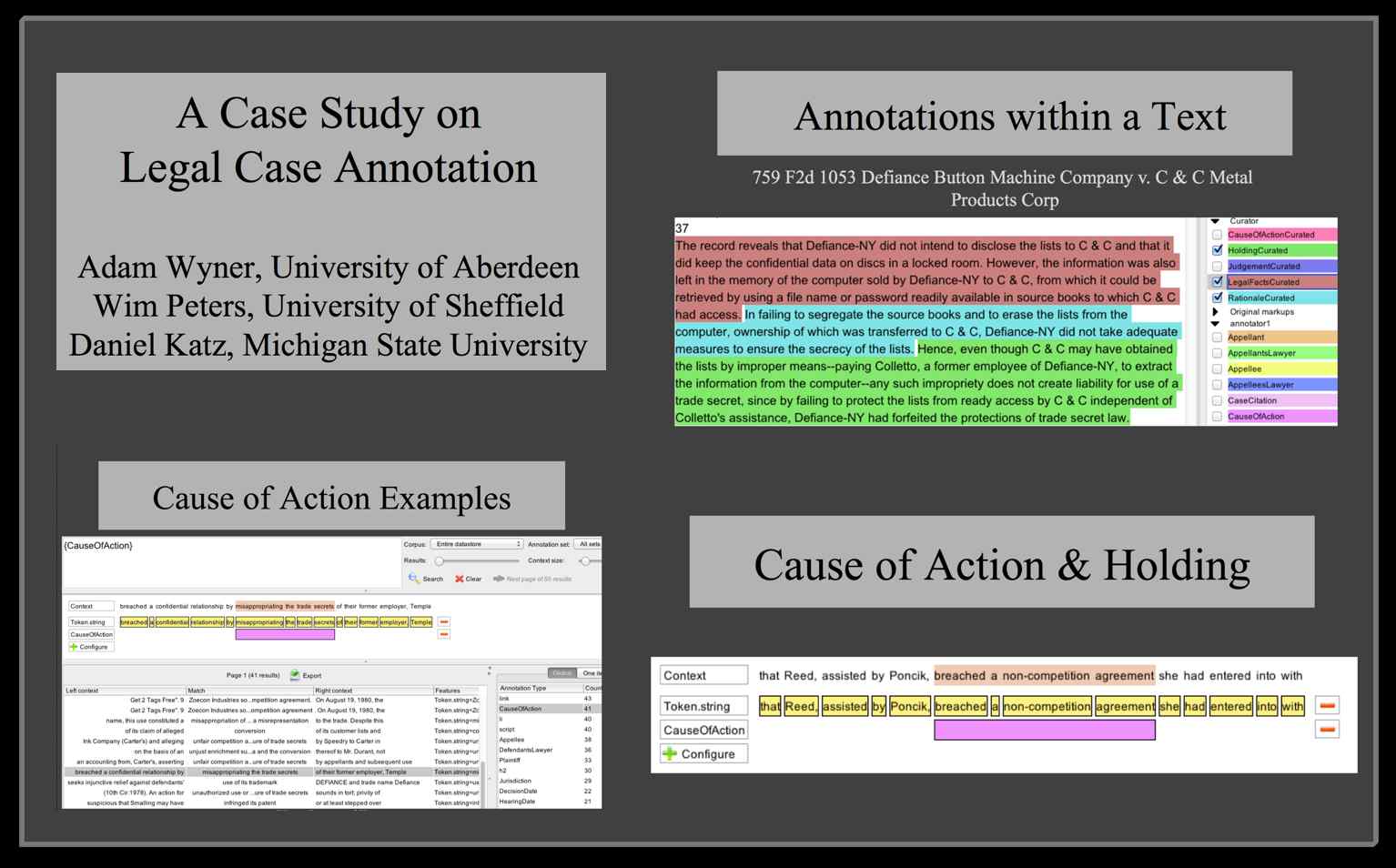 This is an ongoing project with Adam Wyner (Dept. of Computer Science @ University of Aberdeen) and Wim Peters (Dept. of Computer Science + NLP Group @ University of Sheffield) … our very initial pilot project was presented at the 2013 Jurix Conference. Slides are located here and the case study paper for the pilot project is located here. Hoping for more to come on this project in 2014!
This is an ongoing project with Adam Wyner (Dept. of Computer Science @ University of Aberdeen) and Wim Peters (Dept. of Computer Science + NLP Group @ University of Sheffield) … our very initial pilot project was presented at the 2013 Jurix Conference. Slides are located here and the case study paper for the pilot project is located here. Hoping for more to come on this project in 2014!
R Boot Camp – Part 1 in Quantitative Methods for Lawyers (Professor Daniel Martin Katz)
Today we start our R Boot Camp in Quantitative Methods for Lawyers.
It should be fun! 🙂
In total, there will be three set of slides in this multi-day bootcamp designed to introduce students to the logic of R, the basic roadblocks such as loading data and cleaning data, loading various R packages, running basic commands, shifting out of default command settings, plotting data, conducting statistical tests, etc. Later in the course we will use R for regression analysis, etc.
For anyone who might be interested, the Full Course Page including all slidedecks is located here. For help on the installation of R and the RStudio IDE please check out my Loading R/RStudio Bonus Module.

